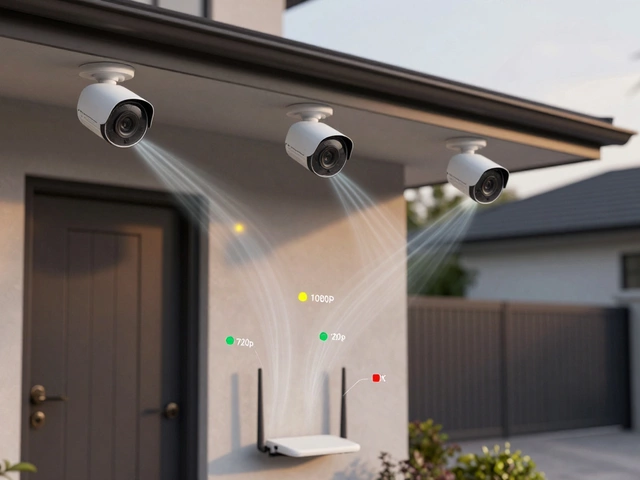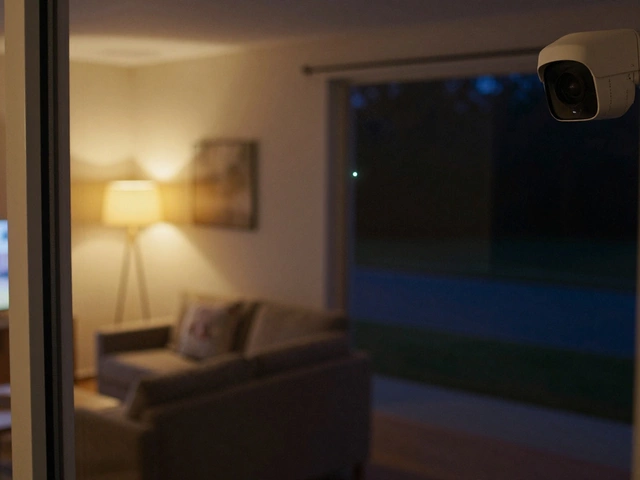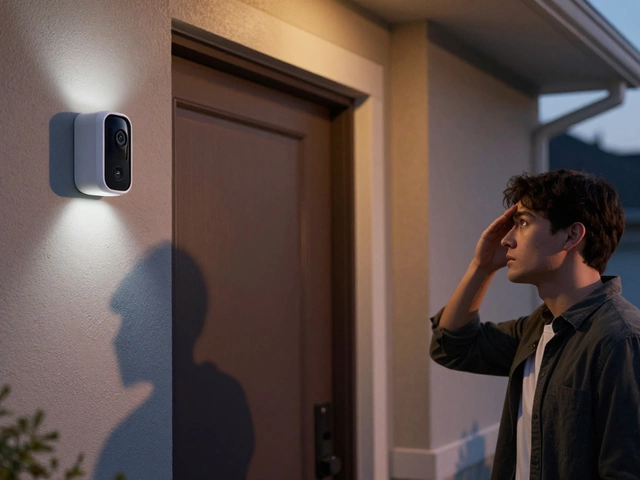Smart doorbells are an exciting addition to our list of home innovations, promising convenience and enhanced security with a futuristic flair. But an essential question hangs in the air for many homeowners: do these gadgets work without WiFi?
The story isn't as straightforward as one might hope. While most of these doorbells are geared to maximize their potential with a steady WiFi connection, there are still alternatives and workarounds for those who might not have reliable internet access. Understanding the needs specific to your home and technology setup is crucial.
Dive into this guide as we unravel the workings of smart doorbells, exploring how they tick, their dependency on the internet, and how you might still benefit from their features should WiFi be off the grid.
- Understanding Smart Doorbells
- WiFi Dependency: Myths and Truths
- Alternatives to WiFi-Connected Doorbells
- Choosing the Right Doorbell for Your Needs
Understanding Smart Doorbells
Smart doorbells are much more than just a chime attached to your front door; they are technological marvels that incorporate a host of features aimed at boosting home security and convenience. These devices typically include a camera, a speaker, and a microphone, enabling two-way communication. With a digital twist to the classic doorbell, you can see who’s at your door, even if you're not home, thanks to the magic of real-time video streaming and notifications. The smart doorbells are designed to send alerts to your smartphone, tablet, or computer when someone presses the bell or when motion is detected. This means you can virtually answer your door from anywhere in the world, as long as you have internet access.
The technology behind these smart doorbells often includes high-definition video capabilities, night vision for clear monitoring after dark, and wide-angle lenses that give you broader views than a traditional peephole ever could. It's fascinating how these devices capture both videos and still images, storing them in cloud storage or on local devices depending on your preference or subscription plans available from different smart doorbell brands. In recent times, integration with smart home ecosystems has become a standard feature, allowing these doorbells to work with virtual assistants like Alexa, Google Assistant, or Apple's HomeKit. This not only enhances convenience but also brings a level of automation that makes managing your home security effortless.
"Today’s smart doorbells are indispensable for modern home security, providing features and functionalities unimaginable just a decade ago." - TechRadar
However, the allure of these home security gadgets extends beyond the obvious functionalities. Some models offer facial recognition, alerting you when family members arrive or, crucially, if strangers linger too long. The data privacy and security aspects have been a hot topic, ensuring that the technology is not only efficient but also safe from hacking and unauthorized access. Moreover, smart doorbells are now integrating AI-based analytics, providing insights and gathering data to improve performance and user experience continuously. This means that not only does your doorbell ring, but it continuously evolves, learning and adapting to your preferences and lifestyle over time.
While the market is flooded with various options, choosing the right smart doorbell depends heavily on your specific needs. Consideration should be given to resolution quality, ease of installation, compatibility with other devices you might own, and whether you prefer a battery-operated or hardwired setup. User-friendly apps and strong doorbell installation support can also be an advantage for those not overly tech-savvy. It's worth noting that smart doorbells, like any other device connected to the internet, pose security and privacy challenges. Users must practice due diligence in keeping their devices updated and setting strong passwords to avoid potential risks.
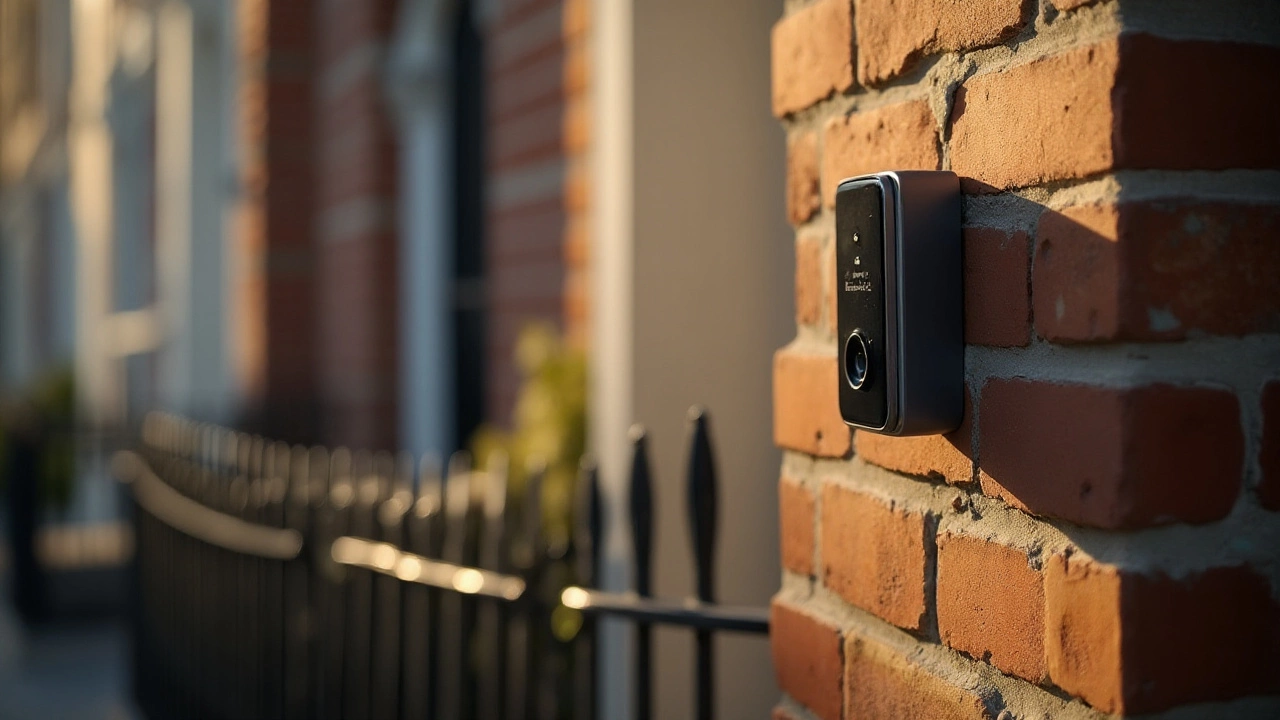
WiFi Dependency: Myths and Truths
There's a widespread belief that smart doorbells are entirely reliant on WiFi to perform any of their functions. This assumption isn't far-fetched when we consider how many smart devices operate optimally only when hooked to the internet. However, it is crucial to differentiate between dependence on WiFi for full functionality versus basic operation. A majority of these doorbells use WiFi to stream live video, send notifications to your phone, and allow two-way communication with visitors at your doorstep. This makes them immensely convenient for those who want to monitor their home while away, but it's not the whole story.
Delving deeper, some smart doorbells can function on basic levels without an active WiFi connection. For instance, their ability to chime or notify you through a wired connection won't necessarily be impacted by your internet status. They might even store video footage locally if equipped with appropriate hardware or have a built-in memory card slot. Despite this, it’s important to note that such offline capabilities are limited. Without WiFi, the data-sharing convenience that these doorbells advertise largely falls short. Imagine a scenario where you're expecting delivery but can't be home—without WiFi, real-time updates and access to video feeds are mostly out of reach.
One mustn't overlook the evolution of home security systems. They have transitioned largely to cloud storage, intertwining their dependency on WiFi with data security. Some systems offer hybrid storage options, balancing both cloud and local storage. This could be a wise choice for those worried about internet disruptions. However, it’s worth noting how manufacturers are designing devices to be versatile. Notably, some versions of video doorbells that operate without WiFi might start recording once motion is detected, storing footage internally for later viewing.
Forrester Research highlights that "over 34% of consumers in the UK would opt for local storage options when choosing a smart security device," underscoring the growing trend of seeking reliability outside continuous online connectivity.Although the lack of WiFi limits these doorbells, they can still serve as a basic layer of security, reassuring homeowners when connectivity struggles or in areas where internet is patchy.
As technology advances, the line between what requires online interactions versus standalone operations continues to blur. Alternative technologies, such as 5G, may offer solutions for minimizing WiFi dependence. But until then, understanding the current limitations and managing expectations forms the crux of effectively integrating these devices into your daily life. In conclusion, while WiFi significantly amplifies what these gadgets can do, knowing the extent of offline capabilities can be just as valuable.
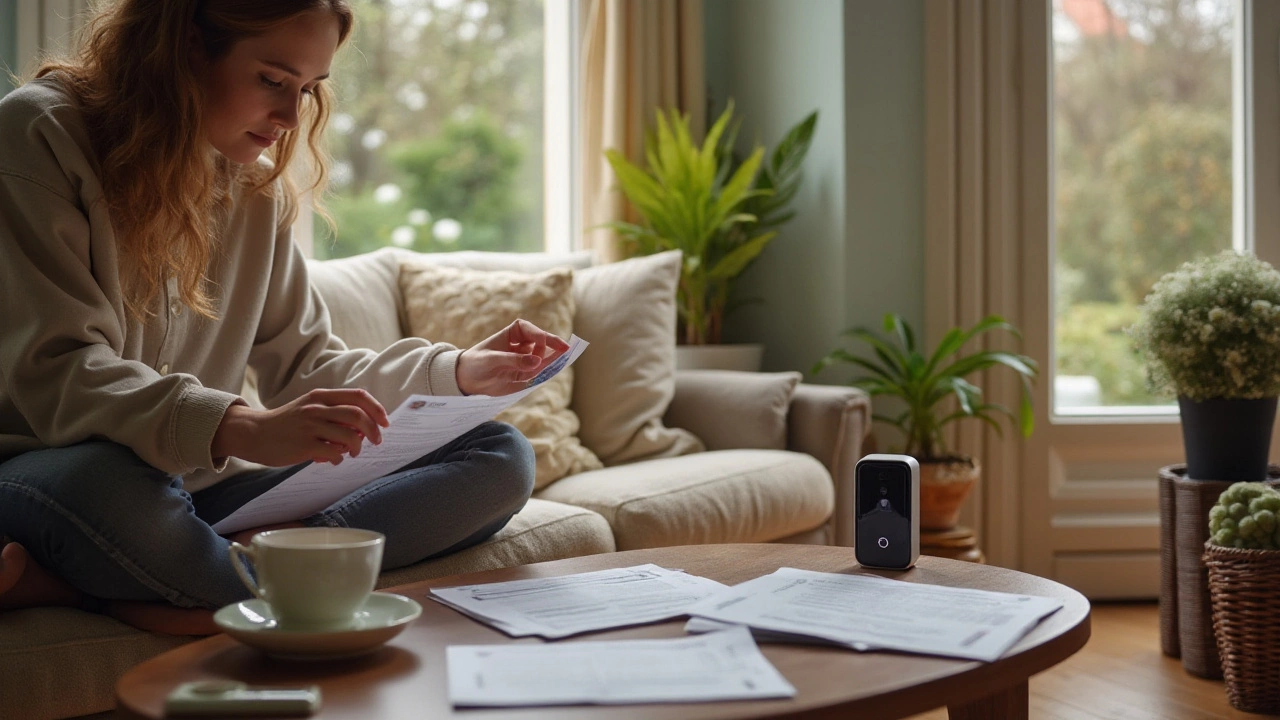
Alternatives to WiFi-Connected Doorbells
Not every household is equipped with a reliable WiFi connection, which might initially seem like a stumbling block for installing a smart doorbell. However, fret not! Technology, ever adaptable, offers some nifty alternatives to keep your home secured. Let's dive in and discover what options are available besides the common WiFi models. First off, consider doorbells that function with cellular data. These devices tap into the mobile network, eschewing the need for home WiFi entirely. It’s a fantastic choice if you’re situated in areas with more robust cellular service compared to local internet. Of course, you'll need a data plan, but these plans are competitive and, considering the security benefits, very much worth it. Another compelling choice comes in the form of video doorbells that rely on Bluetooth technology. These devices connect directly to your smartphone or tablet via Bluetooth, meaning they're not handicapped by the lack of WiFi. Though they might lack remote access capabilities, they make up for it with immediate, local convenience and reliability.
Moreover, some manufacturers have gone back to basics with non-connected digital doorbells. These aren't as feature-rich as their smart counterparts, but if it's basic video capturing and storage you require, devices with internal memory might suit your needs. They store video footage locally, bypassing the requirement for internet data transfer altogether. It's a solution where simplicity meets effectiveness.
CNET's Smart Home lead reviewer, Megan Wollerton, once mentioned, "Sometimes the simplest solutions are the best, especially when technology isn't cooperating."
An interesting development in this field is the emergence of solar-powered wireless doorbells. Without the need for a wired connection or battery changes, they reduce maintenance while providing basic video functionality. They offer an eco-friendly footprint and are a best fit for tech-savvy yet environmentally-concerned individuals. It's remarkable how inventive solutions continue to surface, even bypassing the modern insistence on internet connectivity. While these alternatives might not replace the comprehensive features of a WiFi-connected smart doorbell outright, they certainly elbow their way into consideration. Most importantly, they ensure everyone, regardless of local internet availability, has access to improved security measures. When selecting your alternative, ensure to weigh these options by what suits your living scenario best to maintain that essential peace of mind.

Choosing the Right Doorbell for Your Needs
Picking the right smart doorbell isn't as simple as grabbing the first shiny gadget off the shelf. It's a decision that can productively transform how you manage home security, demanding careful consideration of various factors. Understanding your specific requirements comes first. Do you want a simple bell or are you looking for an integrated system with video surveillance that works with your existing smart home setup? The tech-savvy might desire a doorbell that talks to their smart hubs or even their smartphones. Some options offer impressive features, including motion detection, but that often comes with a dependency on WiFi. For those in areas with sketchy internet connectivity, a classic chime system might be a more reliable choice.
Let's talk about features. Many modern smart doorbells come equipped with HD video, night vision, and two-way communication capabilities, all fantastic for security when you’re not home. Models like the Ring Video Doorbell Pro or the Nest Hello have become popular because they boast such features. Nonetheless, their full potential is only unleashed with a strong WiFi connection. Assess your home's capability for sustaining this level of tech engagement, as it matters if streaming live video is part of your security plans. Keep in mind, certain models can work without WiFi, albeit with limited features. These often rely on local storage or proprietary communication protocols, which may affect the scope of their usefulness.
Home security systems that favor wired connections or come with built-in storage, like the Eufy Security Video Doorbell, can be a great choice if you're keen on recording visitors without relying heavily on the cloud. There are models that utilize SIM cards for network connectivity, but it’s critical to note that such systems might incur additional fees or require specific installation steps. It’s wise to balance cost and features. Smart doorbells range from budget-friendly to premium prices, often reflecting their capabilities. A straightforward option, such as the Liivroad Indoor Wireless Door Chime, is budget-friendly but doesn’t compromise on reliability for basic functionality.
According to a 2023 survey by Statista, 48% of smart home product users identified security enhancements as the primary reason for adopting such technology. This underlines the growing importance of smart doorbells in contemporary home setups. When choosing the right product, consider ease of installation, device compatibility, and obviously, the power source. Battery-powered options offer flexibility but need frequent recharging, while hardwired systems provide continuous power yet require more complex setup processes.
The final considerations involve privacy and data security. With increasing reports of data breaches, it's essential to choose products from reputable brands that offer robust security measures. Assess the company’s data storage policies, and if possible, opt for devices that offer end-to-end encryption. Keep an eye on customer reviews and expert opinions, as they can provide valuable insights. As Mark Twain appropriately stated, reading keeps you informed.
"The man who does not read has no advantage over the man who cannot read."This sentiment applies aptly to researching and selecting your smart devices. Take the time to explore different doorbells, evaluate expert reviews, and understand how each can fit into your current lifestyle and home settings.


